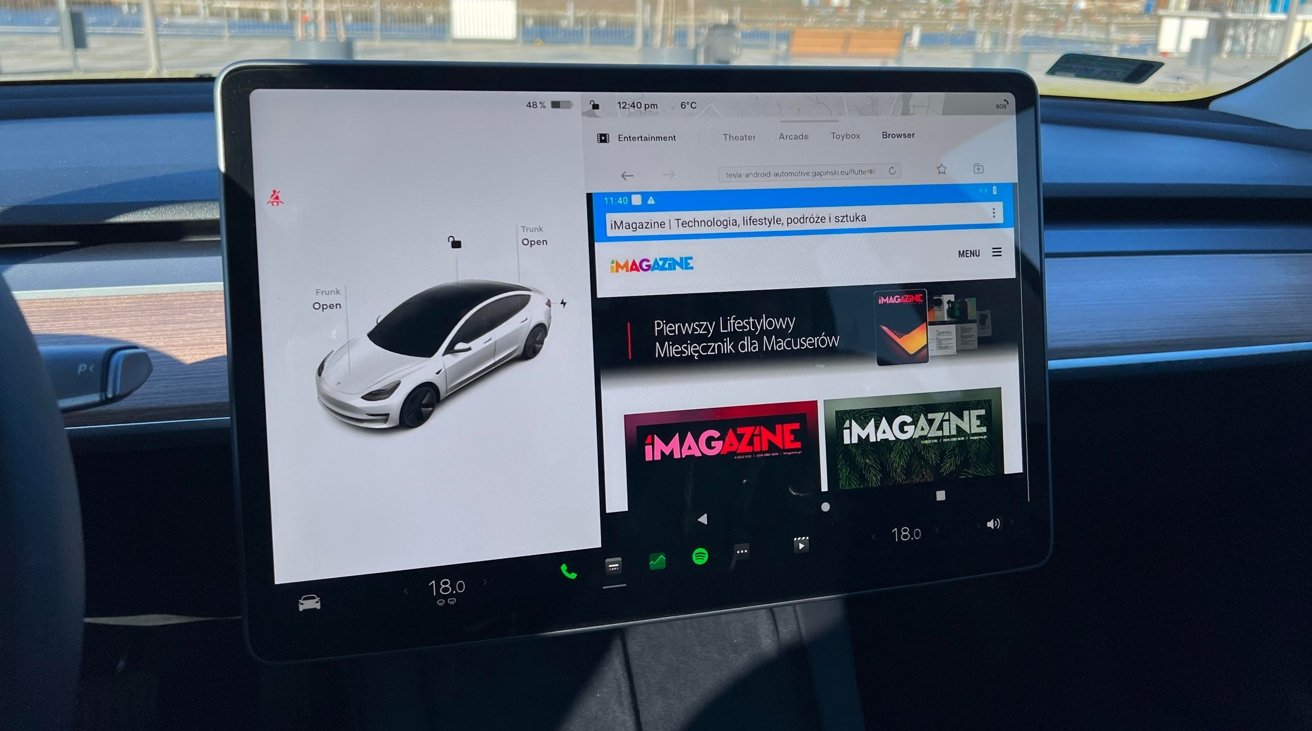Tesla owners who want CarPlay running on their car's screens can now do so, as the developer behind a hack for the car's infotainment system has released code for his project.

In January, Polish developer Michal Gapinski revealed he had come up with a way to use CarPlay on his Tesla. While CarPlay isn't usually available within Tesla's software and would need an aftermarket head unit, Gapinski's solution offered a way to do so without major changes to the car's electronics.
On Saturday, Gapinski announced the first release of the Tesla Android Project, providing a way for the public to download code to set up their own in-car systems.
As the name implies, the Tesla Android Project is all about extending the utility of the Tesla in-car display by turning it into a large interactive Android tablet. Rather than making major software changes to the Tesla, the project instead relies on forcing the Tesla to use its Wi-Fi connection to connect to nearby hardware, and to display an interactive video feed in the browser.
That video feed is supplied by a collection of hardware carried inside the vehicle, which is used to run Android. The assembly includes a pair of Raspberry Pi units, with one used for Android and the other using Linux and handling video and connectivity duties.
CarPlay on Tesla! It's here! Spent the afternoon tinkering with @TeslaAndroid and it's the real deal!
-- Robert Rosenfeld (@robertrosenfeld) May 8, 2022
It's using a few raspberry pies and software wizardry to send wireless android to the Tesla, giving you full CarPlay or Android Auto. pic.twitter.com/nW4Lbtddtv
In effect, the Android Raspberry Pi passes its signal through the Linux Raspberry Pi, which deals with the cellular connection as well as communicating directly with the Tesla. Gapinski hopes to narrow down the hardware required in the future, so that it can all run on one Raspberry Pi instead of two, and with minimal extra equipment.
Since the system is based on Android, users can interact with Android through the browser-based session on the Tesla display. The same system is able to run both CarPlay and Android Auto, so a user can connect their iPhone using Apple's automotive platform.
Still in its early stages, the Tesla Android Project has provided source code under GNU GPL v3.0, released via GitHub.
It remains to be seen how many people will be able to benefit from using the project, given its technical nature. It's also plausible that Tesla could release changes in software that could render the project unusable in the future, especially given the frosty relationship between Apple and Tesla.